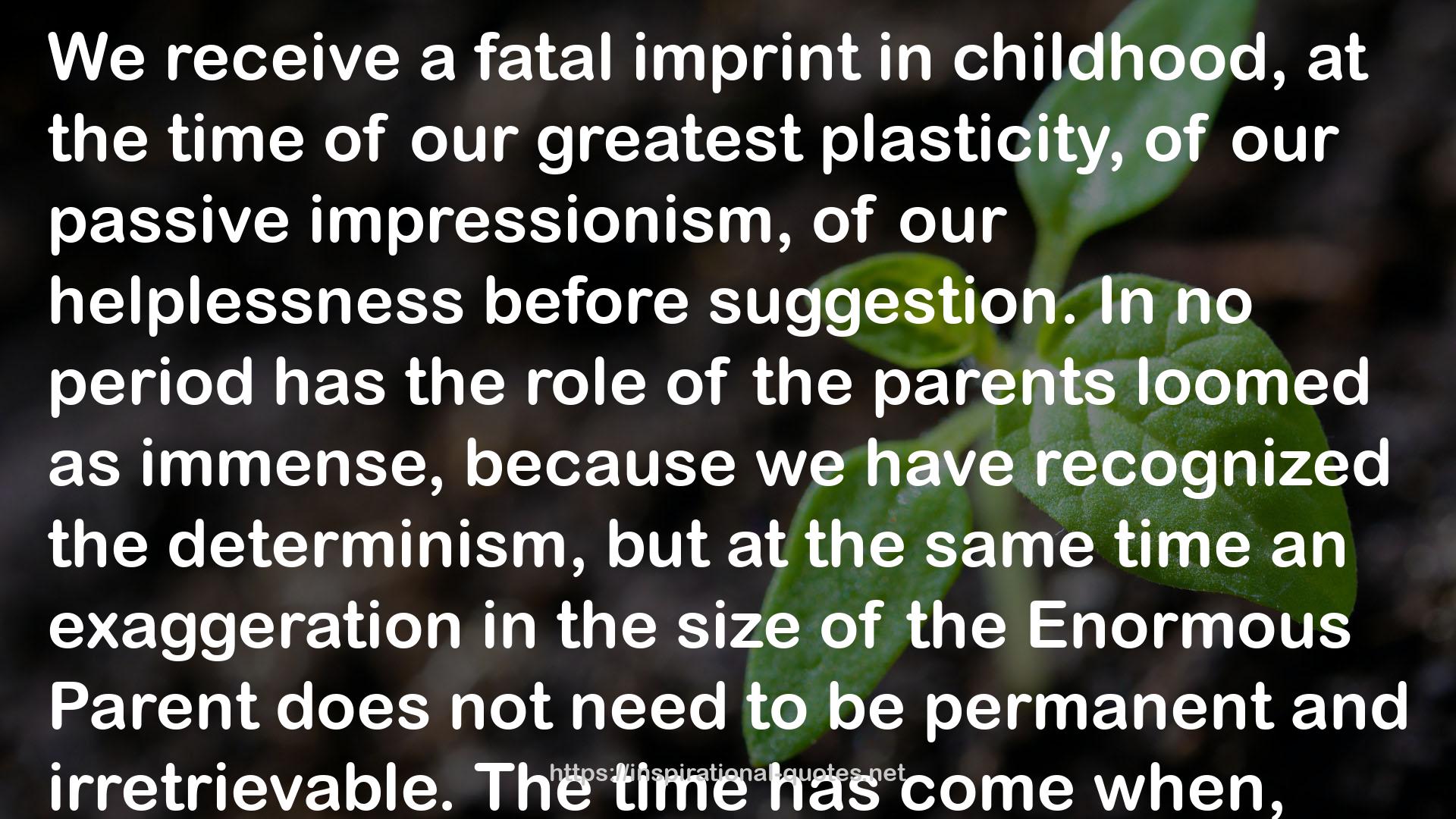" We receive a fatal imprint in childhood, at the time of our greatest plasticity, of our passive impressionism, of our helplessness before suggestion. In no period has the role of the parents loomed as immense, because we have recognized the determinism, but at the same time an exaggeration in the size of the Enormous Parent does not need to be permanent and irretrievable. The time has come when, having completed the scientific study of the importance of parents, we now must re-establish our power to revoke their imprint, to reverse our patterns, to kill our fatal downward tendencies. We do not remain smaller in suture than our parents. Nature had intended them to shrink progressively in our eyes to human proportions while we reach for our own maturity. Their fallibilities, their errors, their weaknesses were intended to develop our own capacity for parenthood. We were to discover their human weakness not to overwhelm or humiliate them, but to realize the difficulty of their task and awaken our own human protectiveness toward their failures or a respect for their partial achievement. But to place all responsibilities upon them is wrong too. If they gave us handicaps, they also gave us their courage, their obstinacy, their sacrifices, their moments of strength. We cannot forever await from them the sanction to mature, to impose on them our own truths, to resist or perhaps defeat them in our necessity to gain strength.
We cannot always place responsibility outside of ourselves, on parents, nations, the world, society, race, religion. Long ago it was the gods. If we accepted a part of this responsibility we would simultaneously discover our strength. A handicap is not permanent. We are permitted all the fluctuations, metamorphoses which we all so well understand in our scientific studies of psychology.
Character has ceased to be a mystery and we can no longer refuse our responsibility with the excuse that this is an unformed, chaotic, eyeless, unpredictable force which drives, tosses, breaks us at will. "
― Anaïs Nin , The Diary of Anaïs Nin, Vol. 5: 1947-1955
